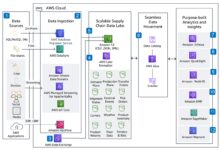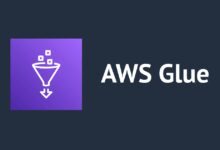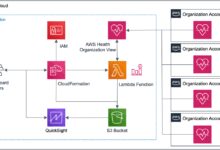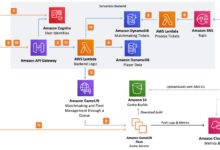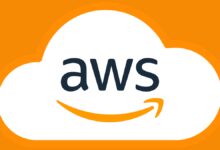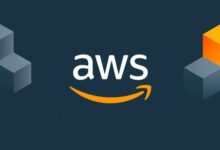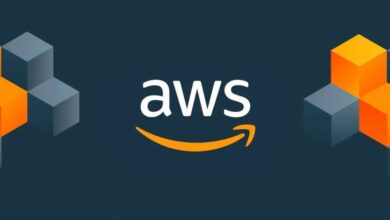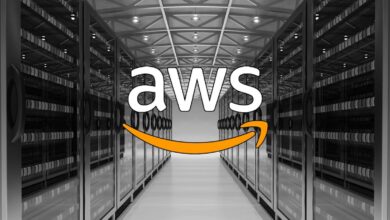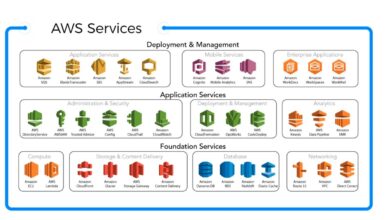AWS Certified Cloud Practitioner: 7 Ultimate Benefits Revealed
Kickstarting your cloud journey? The AWS Certified Cloud Practitioner isn’t just a badge—it’s your golden ticket to understanding Amazon Web Services from the ground up. Simple, powerful, and industry-recognized, this cert opens doors.
What Is the AWS Certified Cloud Practitioner Certification?

The AWS Certified Cloud Practitioner is the foundational-level certification offered by Amazon Web Services (AWS), designed for individuals who want to demonstrate a solid understanding of the AWS Cloud. It’s the perfect starting point for anyone stepping into the world of cloud computing, whether you’re in IT, sales, management, or even a student exploring tech careers.
Who Should Pursue This Certification?
This certification isn’t limited to developers or engineers. It’s ideal for a wide range of professionals who interact with cloud technology, even if not hands-on. Business analysts, project managers, sales teams, and finance personnel in tech companies can benefit significantly.
- IT professionals seeking cloud fundamentals
- Non-technical staff needing cloud literacy
- Students aiming to enter the tech industry
- Managers overseeing cloud projects
According to AWS, the Cloud Practitioner exam validates your ability to define what the AWS Cloud is and its global infrastructure, explain key AWS services, and understand security, compliance, and pricing models. This broad scope makes it accessible and valuable across roles.
Prerequisites and Exam Requirements
One of the biggest advantages of the AWS Certified Cloud Practitioner is that there are no mandatory prerequisites. However, AWS recommends at least six months of exposure to AWS Cloud—whether through hands-on experience, training, or self-study.
The exam, known as CLF-C02 (as of 2024), consists of 65 multiple-choice and multiple-response questions, with a time limit of 90 minutes. It’s available in multiple languages and can be taken either at a testing center or online via Pearson VUE.
“The Cloud Practitioner certification is not about deep technical skills—it’s about cloud fluency. It ensures everyone in your organization speaks the same cloud language.” — AWS Training and Certification Team
Why the AWS Certified Cloud Practitioner Matters in 2024
In today’s digital-first economy, cloud literacy is no longer optional—it’s essential. The AWS Certified Cloud Practitioner certification has evolved from a nice-to-have to a strategic credential that signals foundational competence in one of the most dominant cloud platforms in the world.
Industry Recognition and Credibility
AWS holds over 30% of the global cloud market share, making it the leader in cloud infrastructure. Earning an AWS certification immediately boosts your credibility, especially in industries like finance, healthcare, and government, where AWS is widely adopted.
Companies like Netflix, Airbnb, and Unilever rely on AWS, and they value employees who understand the platform. Holding the AWS Certified Cloud Practitioner certification shows you’re not just tech-savvy—you’re cloud-smart.
Alignment with Digital Transformation Goals
Organizations undergoing digital transformation need teams that understand cloud basics. The AWS Certified Cloud Practitioner helps bridge the knowledge gap between technical and non-technical departments.
- Enables better communication between IT and business units
- Supports informed decision-making on cloud adoption
- Reduces risk in cloud migration projects
For example, a marketing manager with this certification can better understand the implications of launching a cloud-based campaign, while a finance officer can assess cloud cost models more accurately.
Core Domains Covered in the AWS Certified Cloud Practitioner Exam
The CLF-C02 exam is structured around four key domains, each testing a different aspect of cloud knowledge. Understanding these domains is crucial for effective preparation.
Cloud Concepts (26% of the Exam)
This domain tests your understanding of fundamental cloud principles, including the benefits of cloud computing such as scalability, high availability, and cost efficiency.
- Define the AWS Cloud and its value proposition
- Understand the differences between on-premises, hybrid, and cloud environments
- Explain the concept of elasticity and serverless computing
You’ll also need to grasp global infrastructure components like Regions, Availability Zones, and Edge Locations. These are critical for designing resilient applications.
Security and Compliance (25% of the Exam)
Security is a top concern in the cloud. This section evaluates your knowledge of AWS’s shared responsibility model, identity and access management (IAM), and compliance standards.
- Understand that AWS manages security of the cloud, while customers manage security in the cloud
- Explain the role of IAM users, groups, and policies
- Identify AWS compliance programs like GDPR, HIPAA, and SOC
A strong grasp of encryption, AWS Artifact, and AWS Shield is also expected. For more details, refer to the AWS Compliance Programs page.
Technology (33% of the Exam)
This is the most technical domain, covering core AWS services. You don’t need to configure them, but you must understand their use cases and basic functionality.
- Compute: EC2, Lambda, Elastic Beanstalk
- Storage: S3, EBS, Glacier
- Networking: VPC, Route 53, CloudFront
- Databases: RDS, DynamoDB
You should be able to differentiate between services—for example, knowing that S3 is for object storage while EBS is for block storage attached to EC2 instances.
Pricing and Support (16% of the Exam)
This domain focuses on cost management and support options. You’ll be tested on your ability to estimate costs and choose the right support plan.
- Understand AWS pricing models: pay-as-you-go, reserved instances, and savings plans
- Use the AWS Pricing Calculator and Total Cost of Ownership (TCO) Calculator
- Compare AWS Support plans: Basic, Developer, Business, and Enterprise
Knowledge of the AWS Free Tier is also essential, as it allows new users to explore services at no cost.
How to Prepare for the AWS Certified Cloud Practitioner Exam
Success in the AWS Certified Cloud Practitioner exam doesn’t require coding or deep technical expertise, but it does demand structured preparation. Here’s a proven roadmap to help you pass on your first try.
Create a Study Plan with Realistic Goals
Start by assessing your current knowledge. If you’re new to AWS, allocate 4–6 weeks for preparation. Break your study into weekly goals:
- Week 1: Cloud concepts and AWS global infrastructure
- Week 2: Core AWS services (compute, storage, networking)
- Week 3: Security, compliance, and identity management
- Week 4: Pricing, support, and practice exams
Use the official AWS Training and Certification resources to guide your plan. They offer free digital training and practice exams.
Leverage Free and Paid Learning Resources
AWS provides a wealth of free materials. The AWS Cloud Practitioner Essentials course is a must-take—it’s free and covers all exam domains.
- Free: AWS Skill Builder (includes 10+ free courses)
- Paid: Udemy courses by Stephane Maarek or Jon Bonso (highly rated)
- Books: “AWS Certified Cloud Practitioner Study Guide” by Ben Piper
Practice exams are critical. They help you identify weak areas and get comfortable with the exam format. Jon Bonso’s Tutorials Dojo practice tests are among the most realistic.
Hands-On Practice with AWS Free Tier
While the exam is conceptual, hands-on experience solidifies your understanding. Sign up for the AWS Free Tier and explore the console.
- Launch a free-tier EC2 instance
- Create an S3 bucket and upload a file
- Explore IAM by creating a test user
Don’t worry about breaking anything—set billing alerts and stay within free limits. Real interaction with the platform builds confidence.
Benefits of Becoming an AWS Certified Cloud Practitioner
Earning the AWS Certified Cloud Practitioner credential delivers both personal and professional advantages. It’s more than a resume booster—it’s a career accelerator.
Career Advancement and Job Opportunities
Even entry-level roles now list cloud certification as a preferred qualification. Job boards like LinkedIn and Indeed show a growing number of positions that mention AWS Cloud Practitioner as a desired or required credential.
- Cloud Support Associate at AWS partners
- Technical Sales Representative
- IT Project Coordinator
- Cloud Sales Specialist
For non-technical professionals, this cert can be a stepping stone into cloud-focused roles without needing to become a developer.
Increased Earning Potential
According to the 2023 Global Knowledge IT Certification Pay Survey, AWS-certified professionals earn 20–30% more than their non-certified peers. While the Cloud Practitioner is entry-level, it often leads to higher-paying roles.
Entry-level salaries for cloud roles start around $60,000 in the U.S., with potential to grow rapidly as you pursue associate or professional-level certifications.
“Certification validates your commitment to learning. It tells employers you’re serious about your career in tech.” — IT Hiring Manager, Tech Firm
Confidence and Cloud Fluency
One of the most underrated benefits is the confidence you gain. You’ll understand cloud terminology, architectural patterns, and business implications of cloud decisions.
This fluency allows you to contribute meaningfully in meetings, ask informed questions, and make better recommendations—whether you’re in sales, finance, or operations.
Common Mistakes to Avoid When Preparing for the AWS Certified Cloud Practitioner
Many candidates fail not because the exam is hard, but because they prepare the wrong way. Avoid these common pitfalls to increase your chances of success.
Skipping Hands-On Experience
Some learners rely solely on videos and books. While theory is important, interacting with the AWS console helps you visualize services and their relationships.
For example, reading about VPCs is one thing, but creating a VPC with subnets and route tables in the console makes the concept stick.
Overcomplicating the Exam
The AWS Certified Cloud Practitioner is foundational. Don’t dive into advanced topics like Kubernetes or machine learning. Focus on the exam guide and stick to core services.
AWS provides a detailed Exam Guide—use it as your bible.
Neglecting Practice Exams
Practice exams are not just for testing knowledge—they’re learning tools. They expose you to question formats, time pressure, and common traps.
- Take at least 3 full-length practice tests
- Review every answer, even the ones you got right
- Focus on domains where you score below 70%
Many candidates skip this step and are surprised by the exam’s wording and scenario-based questions.
Next Steps After Earning Your AWS Certified Cloud Practitioner
Congratulations—you’ve earned your certification! But this isn’t the end; it’s the beginning of your AWS journey. Here’s how to build on your success.
Pursue Higher-Level AWS Certifications
The natural progression is to move to associate-level certifications. Depending on your career goals, consider:
- AWS Certified Solutions Architect – Associate
- AWS Certified Developer – Associate
- AWS Certified SysOps Administrator – Associate
Each of these builds on the knowledge you gained as a Cloud Practitioner and opens more advanced career paths.
Join the AWS Community
Stay engaged by joining AWS user groups, attending AWS re:Invent, or participating in AWS forums. The AWS Developer Community offers events, webinars, and networking opportunities.
You can also contribute to open-source projects on GitHub or write blog posts about your learning journey.
Apply Your Knowledge at Work
Look for ways to apply your cloud knowledge in your current role. Suggest cost-saving measures using AWS tools, or help your team understand security best practices.
Even small contributions can position you as a cloud advocate and lead to new responsibilities or promotions.
What is the AWS Certified Cloud Practitioner exam cost?
The AWS Certified Cloud Practitioner exam costs $100 USD. This fee is standard globally, though discounts may be available through training programs or events like AWS re:Invent.
How long is the certification valid?
The certification is valid for three years. After that, you must recertify by passing the current version of the exam. AWS sends reminders before expiration.
Is the AWS Certified Cloud Practitioner worth it for non-technical roles?
Absolutely. For sales, marketing, finance, or managerial roles in tech companies, this certification provides crucial cloud literacy that enhances decision-making and credibility.
Can I take the exam online?
Yes, the exam can be taken online via Pearson VUE’s remote proctoring service. You’ll need a quiet room, a webcam, and a stable internet connection.
What’s the passing score for the AWS Certified Cloud Practitioner?
AWS does not disclose the exact passing score, but it’s estimated to be around 700 out of 1000. Results are reported as pass or fail.
Passing the AWS Certified Cloud Practitioner exam is a smart move for anyone entering the cloud space. It builds a strong foundation, enhances your resume, and opens doors to further growth. Whether you’re technical or not, this certification equips you with the knowledge to thrive in a cloud-driven world. Start studying, take the leap, and join the growing community of AWS-certified professionals.
Further Reading:
